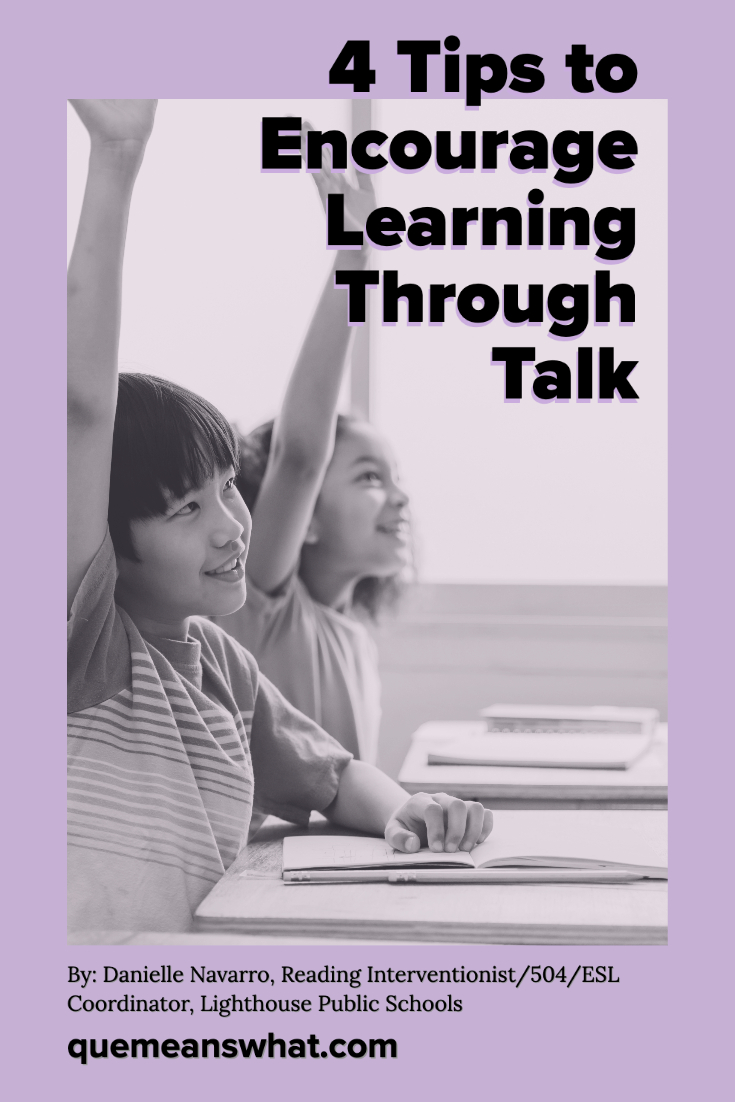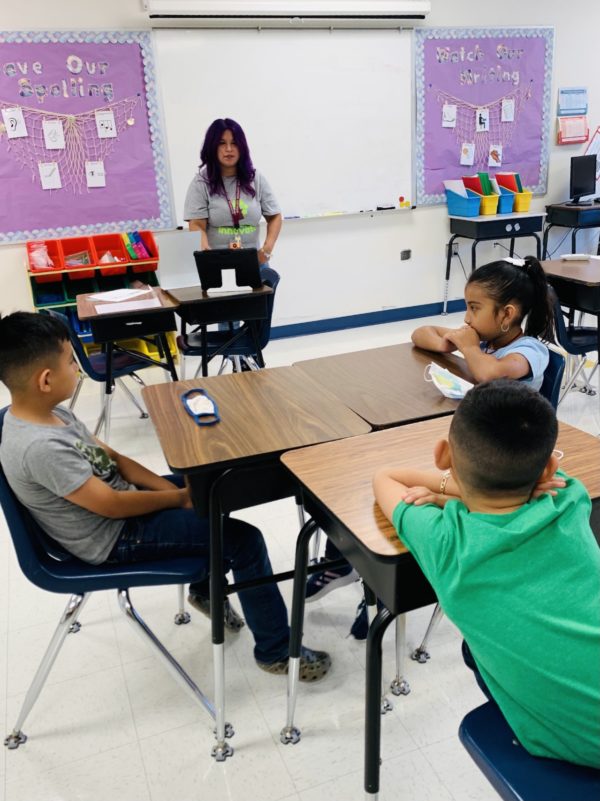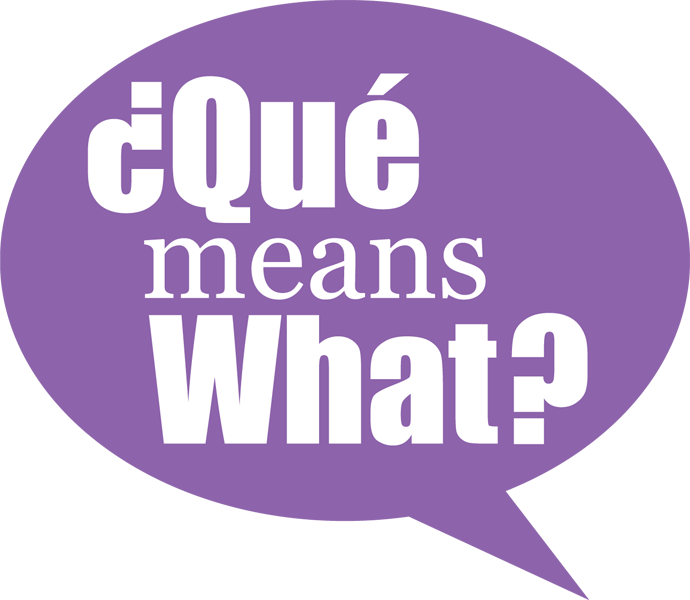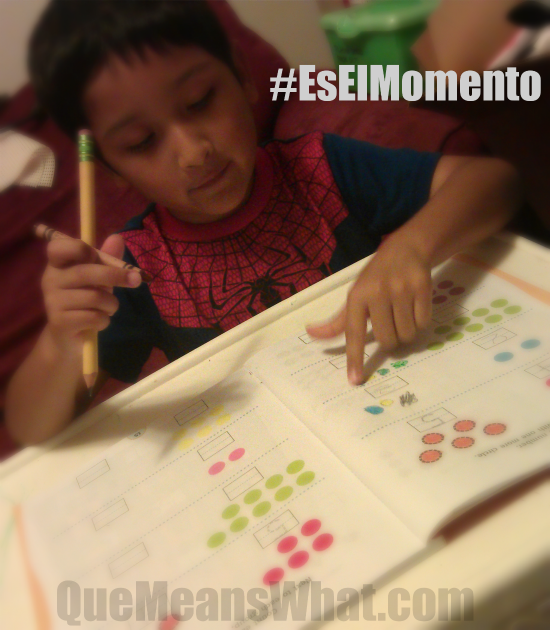Guest Author: Danielle Navarro, Reading Interventionist at Lighthouse Public Schools
Through this unprecedented school year, one of the biggest questions educators get asked is how to help your children at home to continue learning. One of the simplest, yet most powerful, things you can do is TALK. In her book, Teaching Talk: A Practical Guide to Fostering Student Thinking and Conversation, literacy coach Kara Pranikoff states, “There exists a long history of the relationship between talking and thinking and the role of language in learning.” As a parent, we know when children are asked how their day was or what they did at school we’re likely to get a reply of “fine” or “nothing”. This post will give you some tips to initiate conversations with your child and keep their brain activated!

4 Tips to Encourage Learning Through Talk
Use that Academic Vocab
The words academic vocabulary can be daunting, but what does that mean? Academic vocabulary are words that we would normally hear at school and are subject specific such as vocabulary for math, reading, science, and social studies. Think of words you would hear in a math or science class and use them in your everyday activities. You can use the words add and subtract during cooking; characters, setting, problem, and solution while watching a movie; observation while taking a walk; and north, west, south, and east while driving. By using this academic vocabulary, you enable your child to see the connection between what they learn at school and everyday life. When your child hears these words used, they will be more likely to understand the meaning when used in an academic context.
Juicy Words vs Boring Words
More words! Why? Vocabulary helps us to understand what we read and we read in ALL subjects. For some when we think of vocabulary words, we think of memorizing definitions and spelling tests. That’s boring and we don’t want boring; we want JUICY. Juicy words are words that your child may know or have heard before but doesn’t necessarily use in conversation. For example, instead of saying “That bug is big” we can ask what another word for big is. We can expand on their vocabulary by giving them other words to use instead of fun, yummy, or bored. Expanding their vocabulary at home will give them the knowledge they need when they return to school. If students are using juicy words at home, they will already know the word if they come across it at school.
More on learning at home: How to Teach Students Money Not Just Math
Would You Rather Play I Spy
Now we’re getting to the fun stuff: playing games! I also know that as a working parent, you don’t have time to sit and play the games your child always wants you to and that’s okay. We can play games while driving or cooking dinner to engage and keep their brains working! I Spy and Would You Rather are easy games that only involve TALK. I Spy and Would You Rather can seem silly but can support problem solving and analytical thinking by encouraging children to think through certain scenarios to pick one over the other and explain why they would choose it. Are they fun? Yes! Are they learning? Yes, but don’t tell them that!
Be Specific and Purposeful
As I said in the beginning, we know we don’t always get the answers we’re looking for when we ask “what did you learn at school today?” That’s too broad of a question and children can choose to not answer because there’s too many things to choose from. Instead, be specific and purposeful with your questions. Ask about what their favorite part of the day was or even simpler questions about what their favorite color is. Asking specific questions will keep them engaged and involved in the conversation and more willing to share.
If we want our children to be prepared to be critical thinkers and learners in school, the best way we can help at home is by encouraging them to talk. Try the tips mentioned, visit these resources below, or create some of your own to foster conversation with your children.
Pin it for later!

Resources for Learning Through Talk
5 core beliefs about students by Kara Pranikoff: https://assets.pearsoncanadaschool.com/asset_mgr/current/20188/teaching-talk-5-core-beliefs-pranikoff.pdf
More tips to help encourage healthy conversation with your children: https://time.com/65324/7-powerful-tips-for-great-parent-child-communication/
How to Play I Spy: https://raisingchildren.net.au/guides/activity-guides/i-spy-turn-taking-and-talking-activity-for-children-3-6-years
How to Play Would you Rather and Questions to Ask: https://conversationstartersworld.com/would-you-rather-questions/

GUEST AUTHOR:
Danielle Navarro is the Reading Interventionist/504/ESL Coordinator at Lighthouse Public Schools. Lighthouse Public Schools believes in heart before head and works to meet the social and emotional needs of all scholars to find their own place in their educational journey. Learn more about Lighthouse Public Schools on their website https://www.lighthousesa.org/.




